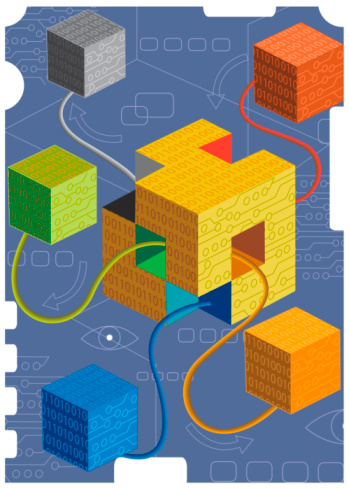GDSII TO OASIS TRANSLATOR
Request an Evaluation
GDSII to OASIS- The translator offers full support for version 6.0 of the Cadence “Design Data Translators Reference” GDSII specification with Y2K extensions, as well as common extensions such as extra layer numbers and data types, extra BOUNDARY and PATH point counts, and AREF lattice rotation.
The Yotta Data Sciences gds2oas tool is a GDSII-to-OASIS file translator that you can use to take full advantage of the new OASIS data file format and its 10-50x file size reductions even when your design tools do not support it directly. It complements the Yotta Data Sciences oas2gds tool which translates OASIS files back to GDSII files.
The translator offers full support for version 6.0 of the Cadence “Design Data Translators Reference” GDSII specification with Y2K extensions, as well as common extensions such as extra layer numbers and data types, extra BOUNDARY and PATH point counts, and AREF lattice rotation. The output is compliant with the P039-00-0308 (March 2008) OASIS specification.
When writing an OASIS file, full support for CBLOCK records is provided; all cell data can be written in CBLOCK records, and the maximum size of any CBLOCK record can be specified. CBLOCK record usage can also be disabled if the file is to be read by a non-compliant OASIS reader.
Element properties in the input GDSII file are automatically converted to compatible S_GDS_PROPERTY properties in the output OASIS file.
The translator can form geometry and placement repetitions from arbitrary repeated cell data, and it retains any GDSII AREFs as type 1, 2, 3, 8, or 9 (orthogonal or rotated array) placement repetitions as appropriate. This provides maximum data compaction vs. GDSII at a reasonable cost in CPU time. On a single CPU core, the software can translate about 60 MB of GDSII input per minute with full 2-D repetition analysis, while a “fast repetitions” option can translate over 500 MB of GDSII input per minute.
Large GDSII files (more than 4 GB) can be converted on 32-bit platforms. The output OASIS file can be more than 4 GB on 32-bit platforms as well, thanks to the use of the robust OASIS reader/writer source code package developed by Yotta (available at extra cost).
"The Company's technology established a common expectation amongst suppliers and customers regarding matters of OASIS compliance, performance and interoperability"
Naoya Hayashi
Electronic Device Laboratory
Dai Nippon Printing Co., Ltd
typedef struct _oasisRepetition {
oasisRepetitionType type;
oasisUInt size1,size2;
oasisUInt grid;
int numVals;
oasisUInt *spacings;
oasisDelta **displacements;
} oasisRepetition;
OAS = OASIS
GDS = GDSII
Workflow Auditor Point Tools
®
TM
®
© Getty Images
NEW at Yotta Data Sciences
* US Patents 9,122,825, 8,555,219, 8,266,571 and 7,685,545.
International Patents: China 200980129771.8, Japan 4768896, Korea 10-1580258, Israel 209907, European Patent 2310967.
OASIS® is a Registered Trademark of Thomas Grebinski
© 2008-2024 Yotta Data Sciences, Inc. All rights reserved.
February 16, 2024- Yotta is offering, to qualified partners, a six-month evaluation-period, with support, for its SEMI P39-0416 OASIS Reader/Writer Source Code.
Visit Page: OAS Reader/Writer
Visit Page: OAS Source Code




